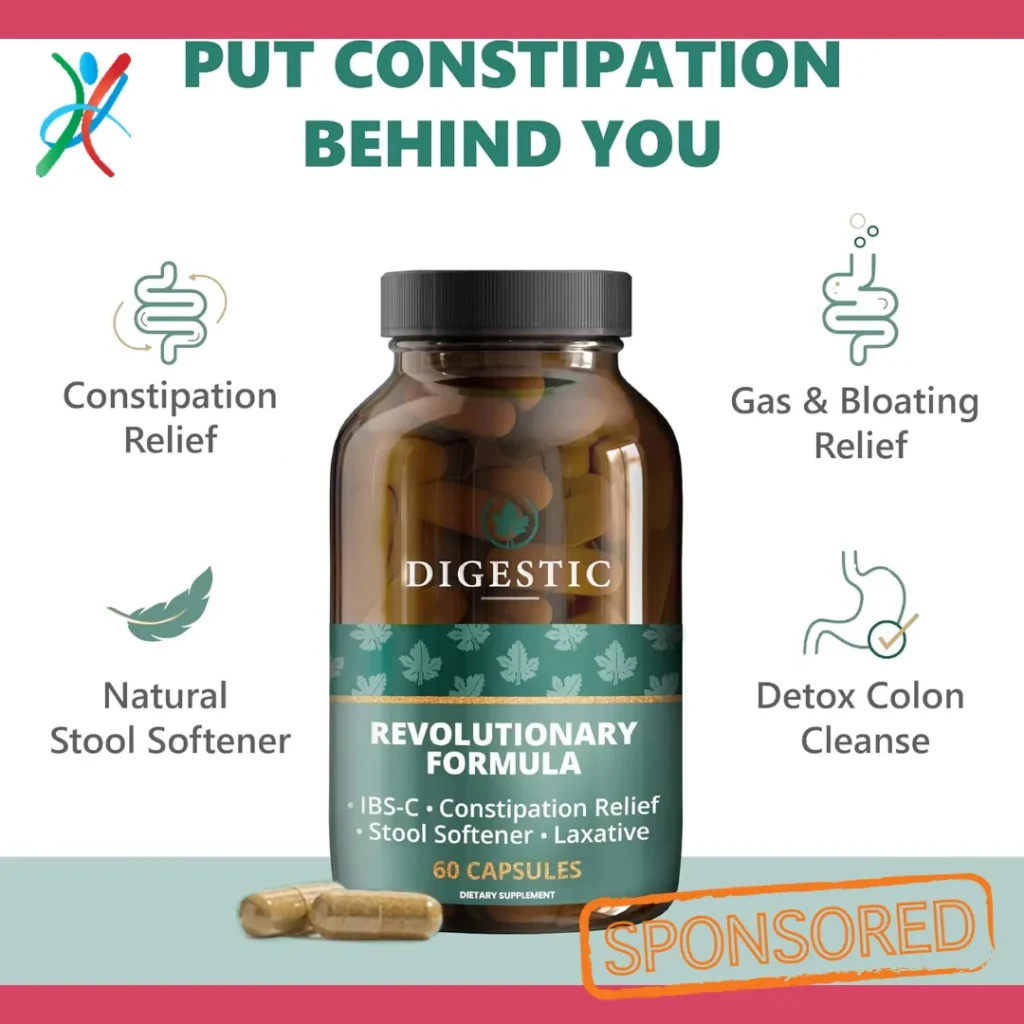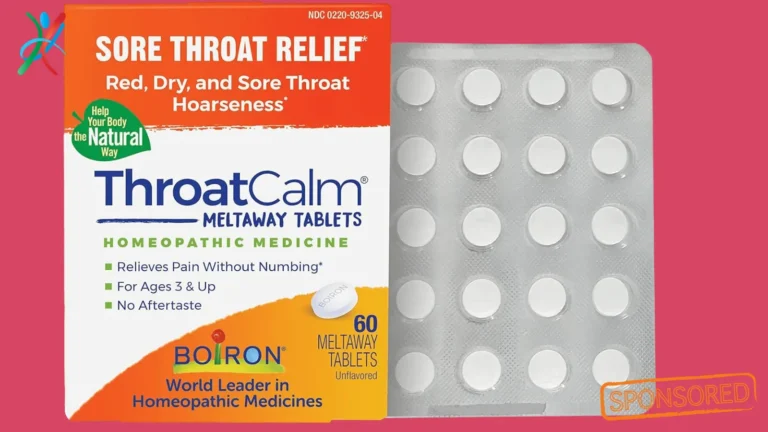Constipation Remedies
Imagine the discomfort of feeling bloated and unable to go about your day with ease.
Constipation is a common issue affecting countless individuals, leaving them in search of rapid relief.
In understanding constipation, one must comprehend its nature, recognize the symptoms, and identify the potential causes that lead to this digestive roadblock.
This article will guide you through dietary adjustments, lifestyle modifications, and natural remedies aimed at providing you with quick constipation relief, ensuring you’re equipped with knowledge for both immediate and long-term solutions.
Understanding Constipation
Constipation is a common digestive condition that affects people of all ages, characterized by infrequent bowel movements or difficulty passing stools.
It can be a temporary condition or a chronic issue, known as chronic constipation.
While constipation might seem simple to define, its impact on quality of life can be more complicated, touching upon far more than just physical discomfort.
Table of Contents Constipation Remedies
Defining Constipation
Medically, constipation is defined as having fewer than three bowel movements per week.
When it becomes severe, individuals may experience less than one bowel movement weekly.
The slow movement of stool through the colon results in hardened feces and difficulties in evacuation.
A range of factors can contribute to constipation, such as medication side effects, poor bowel habits, a low-fiber diet, laxative misuse, hormonal disorders, and colon-related diseases.
Symptoms of Constipation
The typical symptoms associated with constipation are having three or fewer bowel movements per week, passing hard stools, and straining during bathroom visits.
Other signs include feeling a blockage in the rectum that prevents bowel movements, an inability to empty the bowels fully, and needing physical assistance or pressure on the abdomen to pass stool.
Constipation is often accompanied by bloating, abdominal cramps, lethargy, a decrease in appetite, and in serious cases, may escalate to hemorrhoids, anal fissures, or rectal prolapse if left untreated.
Causes of Constipation
Several lifestyle factors can lead to constipation, with dehydration, insufficient dietary fiber, and a lack of physical exercise being chief among them.
Neglecting the natural urge to go to the bathroom can worsen bowel function over time.
In addition, constipation can be a symptom of medical conditions such as diabetes, an underactive thyroid (hypothyroidism), or pelvic floor dysfunction.
Various medications, including those for depression, hypertension, and iron supplementation, are known to induce constipation.
Furthermore, the overuse of stimulant laxatives may harm the colon’s natural ability to contract, paradoxically leading to chronic constipation.
Dietary Approaches for Constipation Relief
When battling constipation, one of the most natural and effective remedies is to make dietary changes.
Adjusting what you eat and drink can greatly influence the regularity and ease of your bowel movements, promoting constipation relief and maintaining digestive health.
Increasing Fiber Intake
Fiber — often referred to as nature’s broom — plays a pivotal role in managing constipation.
It aids in both the prevention and alleviation of this uncomfortable condition.
By increasing fiber intake, you add bulk and improve the consistency of stool, which encourages smoother passage through the digestive tract.
Research indicates that a substantial 77% of individuals with chronic constipation experienced relief by adding fiber to their diets.
Foods rich in fiber, such as oats, fruits, vegetables, whole grains, beans, and nuts, are ideal for easing constipation.
Two different types of dietary fiber work in distinct ways:
- Soluble fiber: Dissolves in water, forming a gel-like substance that softens stools.
- Insoluble fiber: Adds bulk to your stool, which helps it move through your digestive system more quickly and easily.
Experts recommend a daily fiber intake of 25-28 grams for women and 28-34 grams for men for optimal digestive health.
Incorporating a variety of high-fiber foods ensures both types of fiber are consumed, which is crucial for well-rounded digestive support.
Staying Hydrated
The companion to fiber for constipation relief is adequate hydration.
Drinking plenty of liquids enhances the efficacy of fiber, allowing it to better perform its function of bulking up and softening the stool.
Proper fluid intake is a cornerstone of not only relieving constipation but also overall health.
Here’s a hydration tip: Aim for urine that is a pale-yellow color — this is a practical indicator that you’re drinking enough fluids to assist with bowel movements.
Most adults require about four to six cups of water each day, but it’s important to remember this can vary based on factors like climate, physical activity, and overall health.
While water is the go-to liquid, you can also increase fluid intake through consuming beverages like fruit juices and clear soups which contribute to staying hydrated and easing constipation.
Remember, while these nutritional adjustments can significantly impact constipation relief, be sure to consult with a healthcare provider if you experience severe constipation or symptoms persist despite dietary changes.
Lifestyle Changes for Constipation Relief
Incorporating healthy lifestyle changes is a foundational step in addressing constipation.
Simple yet profound adjustments to your daily routine can lead to significant improvements in constipation relief and foster regular bowel movements.
These modifications not only address immediate concerns but also contribute to long-term digestive health.
Here are key elements for initiating lifestyle changes that can help alleviate constipation.
Regular Exercise
Physical movement is not only vital for your overall well-being but also specifically beneficial for your digestive health.
Engaging in regular exercise can enhance abdominal muscle activity and in turn, assist natural bowel function.
An active lifestyle encourages the abdominal contents to move along, potentially providing a natural remedy to constipation.
Moderate forms of exercise, such as brisk walking, have been observed to positively influence digestive symptoms and improve overall quality of life in those experiencing constipation.
By staying active, you reduce the likelihood of having a sedentary lifestyle which is associated with irregular bowel habits.
Aim for at least 150 minutes per week of moderate-intensity aerobic activities, like cycling or swimming, complemented by strength exercises on two or more days a week for additional health benefits.
Establishing Regular Bowel Habits
Creating and sticking to a consistent eating and bathroom schedule forms the cornerstone of regular bowel habits.
The body thrives on routine and setting a regular time for defecation can enhance the frequency of bowel movements.
It’s pivotal to heed the call of nature and go to the toilet when you feel the urge, as ignoring this can result in harder, drier stools that are more difficult to pass.
Hydration goes hand in hand with a fiber-rich diet in managing bowel health.
Ensure you consume ample liquids, focusing on water and other clear drinks to aid in stool passage.
Additionally, incorporating even mild physical activities such as walking or gentle jogging can have a beneficial effect on maintaining a healthy digestive system.
Managing Stress
Stress has a complex relationship with the digestive system and can be a contributing factor to constipation.
Management of stress is therefore an integral part of treating constipation, especially for those affected by IBS.
Techniques such as relaxation training, meditation, tai chi, or engaging in specific yoga poses can significantly help reduce stress levels.
Yoga poses that cause twisting and compression of the abdomen can particularly aid in stimulating bowel movements.
Creating time each day to participate in these stress-lowering activities can play a meaningful role in obtaining relief from constipation.
While these lifestyle changes are beneficial in managing and preventing constipation, it’s essential to consult with a healthcare professional for persistent or severe cases.
These strategies work well in conjunction with any treatment plan recommended by your physician or specialist.
Natural Home Remedies for Fast Constipation Relief
For those seeking quick constipation relief, natural home remedies can be a gentle and effective option.
If you’re looking to prompt a bowel movement, consider reaching for Magnesium citrate, an over-the-counter osmotic agent known for its quick action, typically working within 30 minutes to six hours.
Adding more fiber to your diet is another natural strategy.
Eating a variety of fruits, legumes, vegetables, and whole grains can help ease the passage of stools thanks to the bulk-adding and digestion-promoting properties of dietary fiber.
But it’s not just what you eat; how you tend to bodily signals also matters.
Utilizing glycerin suppositories in conjunction with a squatting position can soften the stool and stimulate the bowel thanks to their mild laxative effects.
Not to be overlooked, the habitual morning cup of coffee or tea can do more than wake you up.
These hot beverages, especially when containing caffeine, may spur your digestive system into action and speed up motility, providing surprisingly quick relief.
For those who prefer a more direct approach, fiber supplements containing ingredients like psyllium husks or guar gum are easily accessible and safely used by most when following the directions, providing an additional boost to the body’s natural processes.
Stimulant Laxatives
For tenacious cases of constipation where other remedies have faltered, stimulant laxatives like senna, cascara, or bisacodyl might be suggested.
These are powerful agents that can offer relief, with suppositories kicking in within a mere 15-60 minutes, and oral forms provoking bowel movements in 6 to 8 hours.
Their effectiveness is tied to dosage; smaller amounts hinder absorption of water and sodium, while larger doses drive sodium (and thus water) into the colon to ease stool passage.
It’s imperative to use these only according to guidelines and sparingly, as to avoid potential unwanted effects and dependency.
When used judiciously, stimulant laxatives can help someone get past a particularly stubborn bout of constipation promptly.
Stool Softeners
Stool softeners, also recognized as emollient laxatives, are a gentler choice for those experiencing constipation.
By enabling the colon to absorb more water, they ease stool passage, offering relief without the urgency associated with other laxatives.
Often better suited for short-term use, these softeners may be particularly beneficial for scenarios such as postoperative recovery or occasional mild chronic constipation.
Again, it’s worth reiterating that consulting a healthcare provider is wise, especially for expectant mothers, before starting a stool softener regimen.
Osmotic Laxatives
Osmotic laxatives serve by pulling fluids into the intestine, which in turn helps move stool through the colon.
Common examples include oral magnesium hydroxide, magnesium citrate, lactulose, and polyethylene glycol.
They tend to be milder on the system and, due to their limited absorption by the body, side effects are rare.
Osmotics like magnesium citrate are not only mild but also reasonably fast-acting, bringing on a bowel movement within mere hours.
Their utility in easing constipation through gentle means makes them an appealing option for many.
Natural Remedies for Constipation Relief
For managing and preventing constipation long-term, natural dietary and lifestyle changes can form a stable foundation for digestive health.
Foods rich in fiber, proper hydration, and over-the-counter options like fiber supplements can transform bowel health.
Additionally, simple practices such as taking deep breaths can encourage better regulation of the digestive process, easing stool elimination.
Tips for Safe Use of Home Remedies
When embracing home remedies for constipation, start by gradually increasing fiber intake to the recommended 20 to 35 grams per day.
Drinking a minimum of 8 glasses of water daily is equally crucial to ensure smooth passage of stool.
Certain foods, such as prunes, bran cereal, and other fiber-rich items, are reputed for treating constipation effectively.
However, caution should be exerted when it comes to rich, fatty, and fiber-poor foods which can exacerbate symptoms.
Moderation is key—even with helpful beverages like coffee or tea, as excessive intake can lead to dehydration and potentially worsen constipation.







